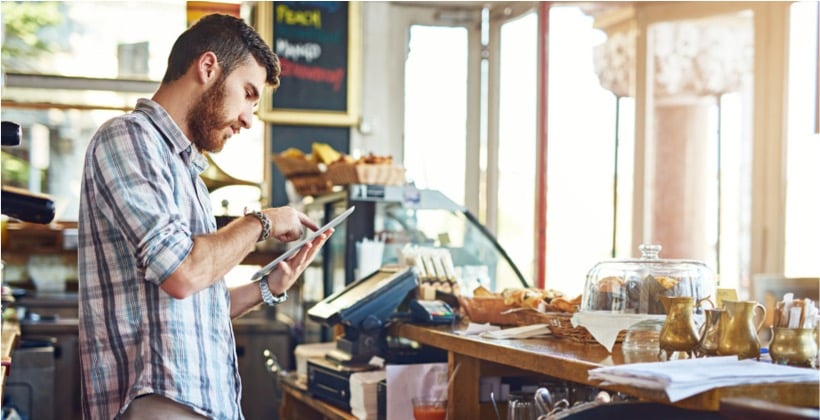Leading a training program in a restaurant or retail environment can be challenging. As inherently social enterprises, they require a great deal of interaction with customers and also between staff members. Implementing a Learning Management System (LMS) that addresses the social component of learning can be a pivotal tool in a company’s plan to boost learning rates as well as productivity.
Albert Bandura proposed the theory of social learning to describe how people learn from observing and modeling the tasks, behaviors, and emotions of those around us. Bandura’s premise outlines four fundamentals that form the basis of social learning: attention, retention, reproduction, and motivation. Let’s look at how those are reflected in restaurant and retail environments.
Attention
While both retail and restaurant stores have ebbs and flows of “busy-ness,” they each have periods of downtime as well. These slow periods can be used to view brief, targeted learning material, delivered right on the sales floor or kitchen line. By incorporating the use of modern technologies and learning techniques, companies can now encourage their employees to “learn by doing” to create an environment in which working and training are not mutually exclusive, but build off each other.
Retention
Having staff training happen at the point of work helps with retention because employees are able to immediately conceptualize what they’re learning with how it applies to their job. Many times learning happens in a place removed from the work site, which leads to a disconnect because the learner is trying to recall information that was implanted in a different environment. Training at the point of need or execution keeps the lesson familiar to the place.
Adherence to Process
Training on the floor alongside other employees helps reinforce task reproduction because trainees can model their behavior and more quickly begin helping their co-workers. Obviously you want to have the learning happen with a mentor who has demonstrated skill levels. When that can’t happen, a mobile learning system can stand in and get the training done to help model behaviors.
Motivation
Social learning theory suggests that motivation comes from observed rewards or punishments. It’s not enough to pay someone; that’s seen as the baseline. You need to have training materials and mentors who reinforce the positive actions you want to see on the floor or in the kitchen.
There is a large amount of turnover in both the retail and restaurant industries, a fact that companies must contend with and address head on in order to succeed in such a competitive landscape. Training employees using social learning as they work and not before they set foot in the kitchen or on the sales floor allows companies to maximize the amount of time their new employees spend “in action”and quickly connects them with the rest of the team.






